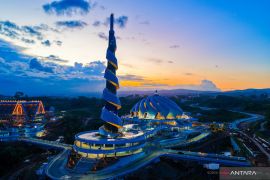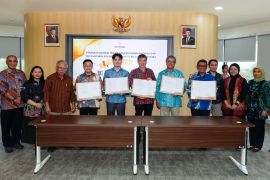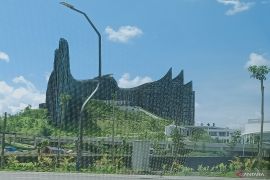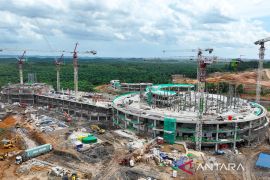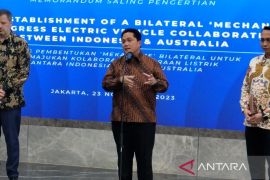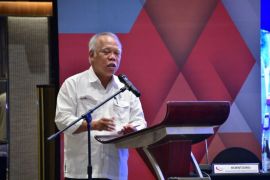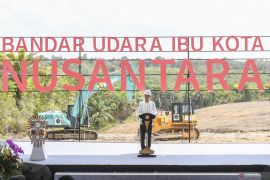The government should prepare the worst-case scenario in connection with forest and peatland fires that can trigger haze enveloping the planned new capital, Prof. Bambang Hero Saharjo of the Bogor University of Agriculture (IPB) remarked while speaking during the Sixth National Dialogue on the Capital City Towards a Sustainable National Capital held here on Tuesday
"I went to the field in Kutai Kertanegara and observed the possibility of forest and land fires here. Hence, this calls for management to deal with extreme conditions, so that (possible wildfires) can be overcome," he stated.
He urged the government to take a cue from wildfires in Australia that occurred since July 2019 until now. The fires have spread and approached Canberra, the capital city of Australia, and produced greenhouse gas emissions equivalent to up to 1.2 billion tons of carbon dioxide.
During the same dialog, Dr KPH. Bagas Pujilaksono Widyakanigara, a postgraduate lecturer of the Faculty of Engineering, Gadjah Mada University, called for the need to conduct a more detailed feasibility study on water, not only for life but for instance also for the energy requirements in the next capital city to be located in the districts of North Penajam Paser and Kutai Kertanegara in East Kalimantan Province.
Related news: New capital city to accommodate population of three million: minister
Related news: New capital construction to start in 2021: Pandjaitan
A capital city is a symbol of a country, so the next capital city must be prepared better than Jakarta, and it should be ready for the most extreme scenario to ensure water availability.
"Is it necessary to desalinate seawater, given that groundwater is not possible, so is surface water? What if there is really no water?" he stated.
Speaking in connection with energy supply, he called to consider Nuclear Power Plants (PLTN), as coal-fired power plants were no longer an option for Indonesia has to keep up its commitments to the Paris Agreement.
"What if there is no wind? I want to use hydro (to generate energy), but there isn't much water. However, the need for electricity will be huge, as it is impossible for the capital city to face power outage twice a week," Bagas stated.
Zenzi Suhadi, head of the National Executive Advocacy Department of Indonesia's prominent environmental NGO Walhi, remarked that there were 109 mining holes at the location of the next capital city.
"What will be the kind of government scenario to solve it?" he questioned.
Lest closing the mining sites will burden the capital city or other regions in East Kalimantan due to demands for land swaps, he added.
Related news: Jokowi is upbeat about capital city relocation in 2024
Related news: President assures no congestion, flooding in new capital
Translator: Virna P Setyorini, Fardah
Editor: Sri Haryati
Copyright © ANTARA 2020

